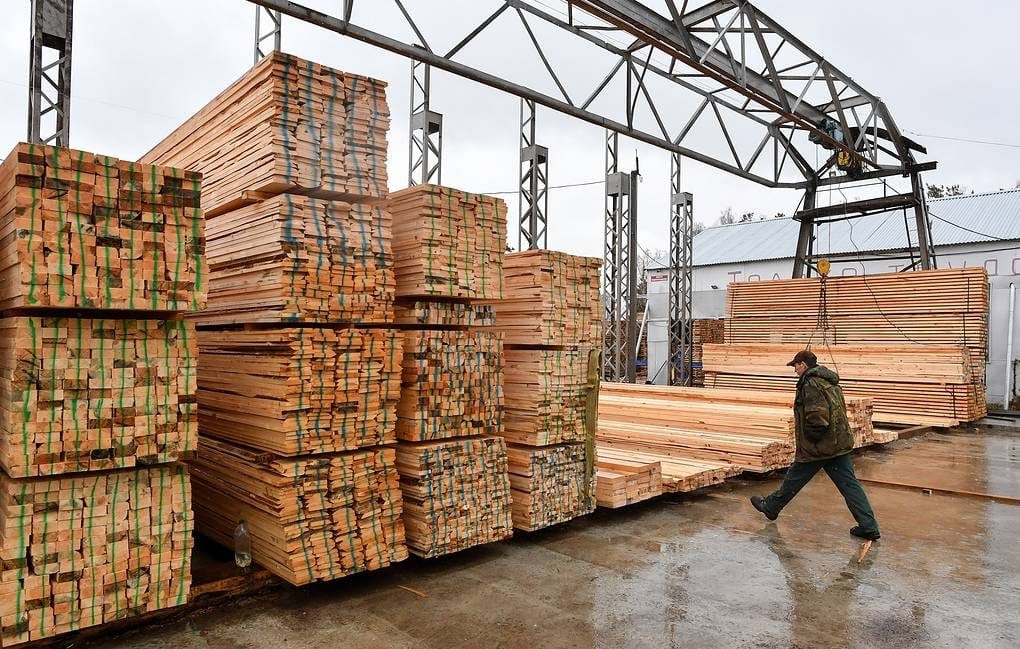The withdrawal of foreign companies from Russia in 2022 may lead to a shortage of timber products, which will gradually be covered by Russian-made products. However, the quality of products will be lower due to the cessation of supplies of western consumables and components.
Western companies began to talk about the sale of their Russian assets, immediately opposing Russia’s invasion of Ukraine. The exodus from Russia was associated not only with political, but also with economic reasons.
As a result of the sanctions, Russian factories that supplied products to Western markets found themselves without sales. And increased freight rates due to the cessation of work with Russian cargo by the largest container companies have sharply increased the cost of deliveries to Asia, the main export market for Russian sawmills and pulp companies.

Among the exiting woodworking companies, the Swedish IKEA is the leader in terms of production volume. The company owns three in Russia in the Leningrad, Kirov and Novgorod regions with a total capacity of 500,000 cub m of polished chipboard, 25 million sq m of chipboard, 190,000 cub m of lumber, 50,000 tonnes of pellets and 25,000 cub m of furniture units a year.
The deal to sell the factories may be closed by the end of the first quarter of 2023, but the company has not yet announced a buyer.
The Finnish Metsä Group suspended the operation of the Metsä Svir sawmill with a capacity of 280,000 cub m of sawn timber and 150,000 cub m of chips back in the summer. Currently, the plant is not operating, but the company has not publicly announced anything about the sale of the asset. At the same time, Metsä Group’s logging company Metsä Forest Podporozhye has resumed operations, albeit to a lesser extent.
Stora Enso sold the Setnovo and Setles plants with a total capacity of 350,000 cub m of sawn timber and 65,000 tonnes of pellets to Russian management.
At the beginning of 2023, the Austrian Mayr-Melnhof Holz sold the MM-Efimovsky plant in the Leningrad region with a capacity of 380,000 cub m of sawn timber and 58,000 tonnes of pellets to the Russian company Aspek-Les.
At the same time, the Austrian Kronospan, which owns five plants in the country with a capacity of more than 1 million cub m of OSB panels, 2 million chipboards and 50,000 cub m of film-faced chipboard, continues to work in Russia without changes.
The Austrian company Egger did not stop operation of its two Russian factories with a capacity of 873.000 cub m of chipboard, 350,000 cub m of MDF, 15 million sq m of chipboard, 15 million sq m of laminate and 55 million sq m of impregnated paper. The Turkish Kastamonu plant in the Republic of Tatarstan with a capacity of 1 million cub mf MDF and 35 million sq m of laminate is still operating.
The Swiss Krono Group also continues to operate on the Russian market with a plant in the Kostroma region with capacity of 500,000 cub m of MDF and 700,000 cub m of chipboard. Iida Group continues to own a 75% stake in the Far East RFP Group, which has a 2 million cub m of logging capacity, 240,000 cub m of lumber, 240, 000 cub m of veneer and 10,000 tonnes of wood pellets each year.
In the pulp and paper industry last year, large Western packaging manufacturers left the Russian market. Tetra Pak handed over three of its Russian plants with a total capacity of 7 billion units of packaging to local management, citing the impossibility of supplying production components due to sanctions.
Stora Enso has sold four plants with a capacity of 395 million cub m of corrugated packaging to Novopak, which is owned by the management of these plants.
According to Wood Resources International, an immediate impact of the war in Ukraine and the sanctions imposed on Russia has been a “dramatic reduction” in exports of forest products from Russia, Belarus, and Ukraine.
In 2021, these three countries reportedly accounted for almost 25% of worldwide lumber trade, and their total forest product exports were valued collective at $17 billion in the same year.






